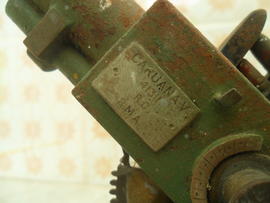In the fifth part of the interview, Vincent 'Censinu' Caruana described the sanitation at Siggiewi, the lack of medicine and doctors, Mussolini's death, the prisoners of war incarcerated in Malta and his demobilisation from the army.
In the fourth part of the interview, Vincent 'Censinu' Caruana continued by mentioning the arrival of the convoys to Malta, the arrival of Spitfire aircraft and the heavy resistance the anti-aircraft gunners had put up against the German and Italian bombers. He explained how Fascist Italy had surrendered on 8th September 1943 - the day of Our Lady of Victories - and finished by mentioning the Victory Kitchens.
In the third part of the interview, Vincent 'Censinu' Caruana started by recalling conscription and how he had been drafted into the army. He had to undergo medical tests and mentioned how the food provided to servicemen was much better than that available to civilians. He talked about life in the army - he had been assigned to 22 Battery, 3 LAA Regiment, Royal Malta Artillery (R.M.A.) - mentioned different diseases and talked about how he had suffered from scabies.
In the second part of the interview, Vincent 'Censinu' Caruana started explaining how refugees (including his family) had been welcomed in Siggiewi. He had to get accustomed to the new conditions in a rural setting, far from home. He talked about the pre-war situation, the arrival of anti-aircraft guns, the plight of the internees, the sirens and the people's interactions in the shelters.
In the second part of the interview, Vincent 'Censinu' Caruana continued by talking about the lack of contact with British servicemen and the numerous colonial soldiers which were stationed in the Island. He described the air raids, Operation Pedestal and the Convoy of Santa Marija and his demobilisation from the army.
